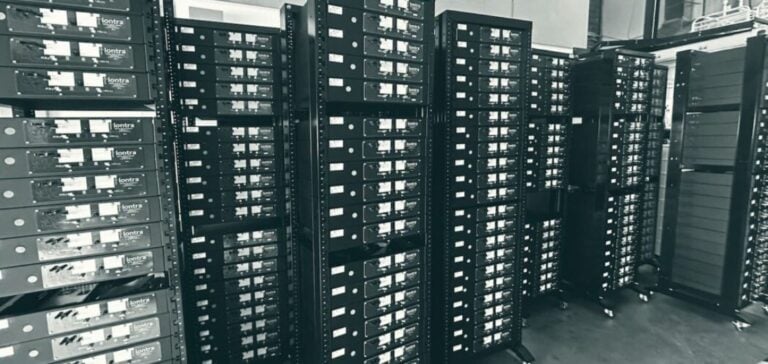Iontra Inc., a company specializing in advanced battery charging technologies, has received a $2.15 million grant from ARPA-E (Advanced Research Projects Agency-Energy) as part of its CIRCULAR program. This funding is intended to validate Iontra’s innovative battery state of health (SOH) sensing technology for electric vehicles (EV), known as Pathfinder. The aim is to extend battery lifespan by providing detailed, real-time data on battery health.
The grant is part of ARPA-E’s CIRCULAR program, which seeks to promote a circular economy model for the U.S. EV battery supply chain. This initiative encourages the development of technologies that support increased longevity, regeneration, repair, reuse, and remanufacturing of batteries. Following this objective, Iontra’s three-year project will focus on pre-commercial development of its battery state sensing technology, including demonstrations on EV battery packs.
Collaboration with Strategic Partners
To successfully carry out this project, Iontra is partnering with Idaho National Laboratory (INL) and Freudenberg Power Systems, two key industry players. INL will focus on developing advanced prognostic models and technology validation, while Freudenberg will provide high-quality cells and packs for testing and development. Together, these partners aim to significantly improve EV battery management, a critical issue for the electric vehicle sector.
Iontra’s Pathfinder technology is based on proprietary algorithms capable of accurately calculating multiple battery states, including state of charge (SOC) and state of health (SOH). This information allows EV manufacturers to manage the energy flow within the battery more efficiently, which extends its lifespan and reduces ownership costs for EV drivers.
Ambitious Goals for Cost Reduction
The ARPA-E-supported project also aims to lower the energy cost associated with EV lifespans. The advanced SOH and SOC calculations provided by Iontra’s technology seek to enhance battery management and system reliability, which is essential for optimizing both costs and energy efficiency. ARPA-E aims to achieve an energy cost of $0.02 per kWh, down from the current $0.04, over the lifespan of a vehicle.
Daniel Konopka, co-founder and Chief Technology Officer at Iontra, expressed his appreciation for the grant, noting that the company’s technology could revolutionize battery state management and support U.S. autonomy in the EV battery market. “We are grateful to ARPA-E’s CIRCULAR program for its support and excited to collaborate with Idaho National Laboratory and Freudenberg to strengthen U.S. leadership in EV battery technologies,” he stated.
A Global Impact for the Energy Future
By extending EV battery lifespans and improving their performance, this project could positively impact energy security and sustainability in the U.S. According to Jeff Granato, President and CEO of Iontra, this battery-agnostic technology, which enables proactive maintenance and better battery health assessment, could also support safer and optimized battery use.
The ARPA-E grant awarded to Iontra and its partners thus marks a critical step toward greater autonomy in the U.S. battery sector, while aligning with a sustainability approach essential to the energy sector and end users.





















